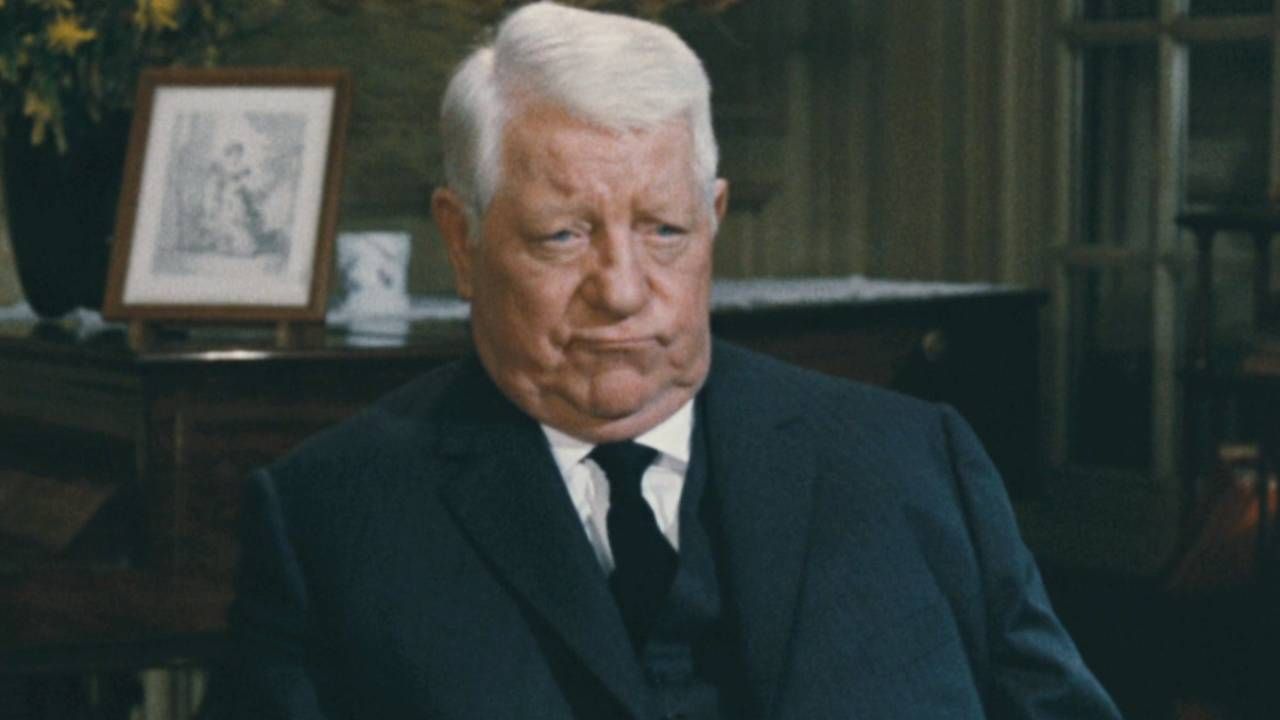Feature film directed by Rubens Rewald with testimonials from the family and colleagues of the singer of “Disparada”
if the singer Jair Rodríguez (1939-2014) had only performed the song Disparada at the 2nd Festival da Música Popular Brasileira, in 1966, it would already be a great feat for a black boy, born in the interior of São Paulo, who learned to sing in church and honed his technique in nightclubs and you dance of the capital before winning a festival – the equivalent, at the time, of a football league final.
However, Jair was way beyond that night in 1966 — and even beyond any mischief he pulled on stage. This is exactly what the documentary intends to show Jair Rodrigues – Let them tellwhich will arrive in cinemas this Thursday 27.
Production didn’t start in time to have Jair alive to tell his story. In the documentary, however, he revives, or rather, the musician Jair de Oliveira, his eldest son, who interprets him masterfully to narrate undocumented passages through images. “The fiction, within the documentary, is another layer of the narrative. The idea was to take the viewer inside a Jair concert, to show the relaxed way in which he told the facts of his life”, explains the director.
For Jairzinho, representing his father reinforces something the singer has always loved behind the scenes. “He was essentially a family guy,” says the musician.
The director has made sure that Jair’s joy – expressed in the scenes in which he plants a handstand on stage or literally throws himself into the audience during a performance in Salvador – does not grant him, for the new generations, the title of mere buffoon singer. The discussion occupies long minutes of the documentary.
MARCH. the disc Feast for a Black Kingfrom 1971, with the same name as one of the greatest successes of Jair’s career, is considered a milestone in his career by educator Salloma Salomão, one of whom Rewald auditioned for the film.
“This record is related to an attempt by Jair to single-handedly construct the differential of a black artist within Brazilian music. These are songs that draw on black practices that were previously seen as folklore,” explains Salomão in the documentary. Therefore, rather than seeing Jair, it is necessary to listen carefully to him.
One felt absence among those invited to speak at the documentary – or name to mention – is that of producer Manoel Barenbein. He worked with Jair between 1967 and 1971, a crucial period in the singer’s career, when the program O bossa good ended and Jair and Elis Regina, his television collaboration, had to search for their respective groups within the music separately.
Barenbein, currently 80 years old, produced the leading album Feast for a Black Kingand collected new songs for Jair’s repertoire.
Review: History shows Jair Rodrigues may still be an idol today
Luiz Zanin Oricchio, special for the Estadão
Jair Rodrigues was an icon of Brazilian music. Rubens Rewald’s documentary Jair Rodrigues – Let them tell explain why. And it hints that Jair may still be an idol today. For Jair, as for Oswald de Andrade, joy is the litmus test – and it is missing.
Basically, the building materials of the documentary are the many images of the singer in television programs, festivals and interviews. Jair has built his artistic trajectory in the age of TV, which makes this material abundant. We also have testimonies of Solano Ribeiro, the father of festivals, of musicians such as Hermeto Paschoal and Théo de Barros and of a specialist of the stature of Zuza Homem de Melo.
Is it a tribute film to the character? Yes, and exciting too. For the older generation, bring the good times of MPB back into bad times. For the younger ones it presents something they may not know, such as the cathartic excitement of the age of festivals in a country oppressed by dictatorship.
Jair Rodrigues was a great popular singer and made festival history, especially in what he sanctioned Disparada, the inspired song by Geraldo Vandré and Théo de Barros. This is a turning point in Jair’s trajectory and is therefore covered in the dynamics of the documentary.
Born and raised in the hinterland of São Paulo (Igarapava and Nova Europa), Jair established himself as a samba singer. He was pure joy on stage, especially in duo with Elis Regina in the mythological program Or Fino da Bossa. The partnership spawned the recording of three LPs, one of which surpassed one million copies sold.
However, when it was necessary to choose an interpreter for I shoot, Jair’s name was initially vetoed by one of the composers, Geraldo Vandré. For Vandré the protest song did not harmonize with the image of a singer always cheerful, irreverent, with a broad smile.
However, the choice was made and Jair Rodrigues, digging into his inner roots, found the drama and drive to become the ideal interpreter of this emotional song that made history in MPB. The structure of the documentary may be traditional, but the character is multifaceted.
Where to watch it: in São Paulo, the film will be screened in the Reserva Cultural, Petra Belas Artes Espaço Itaú Frei Caneca and Cinesystem Morumbi Town cinemas
Source: Terra
Earl Johnson is a music writer at Gossipify, known for his in-depth analysis and unique perspective on the industry. A graduate of USC with a degree in Music, he brings years of experience and passion to his writing. He covers the latest releases and trends, always on the lookout for the next big thing in music.







